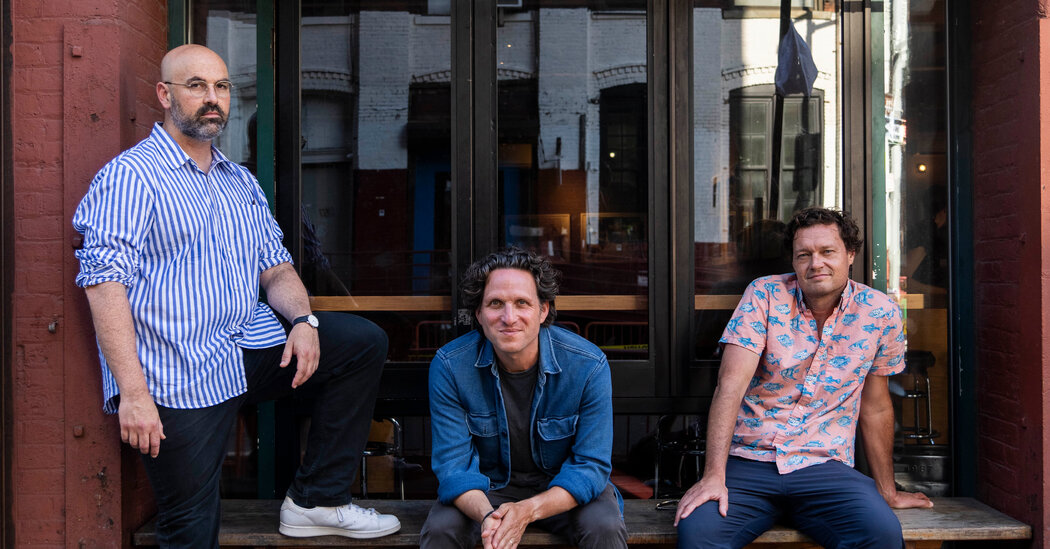
In 2012, Aaron Lammer, Max Linsky and Evan Ratliff decided to try their hand at a relatively untested form: podcasting. As editors and writers in their 30s who were navigating the churning waters of digital media, they wanted to understand how their favorite types of stories — long-form magazine articles — came together.
So they bought a microphone, placed it in the middle of a desk at their makeshift studio in the Dumbo neighborhood of Brooklyn, which was really just a spare room in the office of The Atavist, a magazine Mr. Ratliff helped found, and invited journalists and narrative nonfiction writers to tell them about their work, and their lives.
“Our expectations were pretty modest,” Mr. Lammer said, and they weren’t sure how many people would listen.
Over the next decade, their podcast, “Longform,” became required listening for aspiring and early-career writers who were eager to learn about how the people they looked up to — from veterans of legacy publications to bloggers at new media start-ups — made it to where they were. Listeners also tuned in to satisfy curiosities about the journalists whose bylines they saw again and again, as well as for inspiration and practical guidance.
George Saunders or Ta-Nehisi Coates might discuss how they discovered their writerly voices; Connie Walker or Lawrence Wright would detail how they approached reporting excursions; Elif Batuman or Vinson Cunningham would share their theories on narrative and criticism.
“‘Longform’ was like a cheat sheet, a master class in craft, a gauge of personal idiosyncrasy,” Hua Hsu, who won a Pulitzer Prize for his memoir “Stay True” and was a two-time guest on the show, wrote in an email. “At a time when journalism felt like a very beleaguered profession, and media in general seemed devalued, it provided little moments of uplift to hear people so committed to doing their work at such a high level.”






